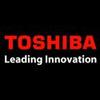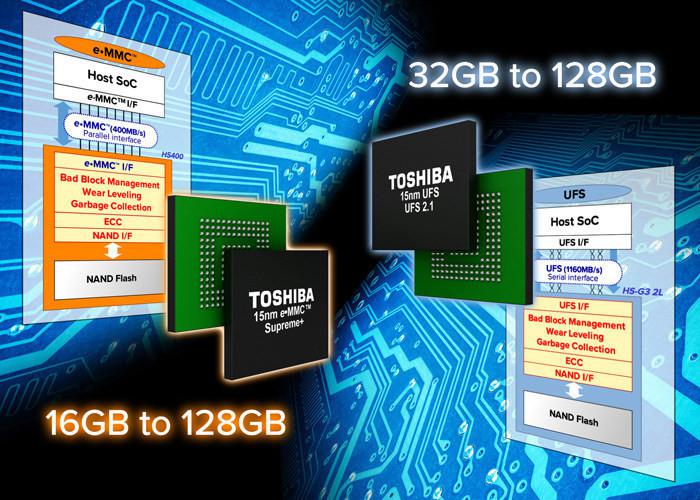Toshiba enhanced its lineup of managed NAND devices with the addition of new Embedded Multimedia Card (e-MMC) and Universal Flash Storage (UFS) embedded memory solutions. Featuring enhanced integrated controller technologies, the new 'Supreme+' e-MMC (JEDEC ver. 5.1) and UFS (JEDEC ver. 2.1) offerings deliver significant read and write speed improvements to demanding applications.
In contrast to raw NAND flash memory solutions, e-MMC and UFS devices integrate NAND flash memory and a controller chip in a single package. This saves space and relieves host processors of the burden of key memory management functions including bad block management, error correction, wear leveling, and garbage collection. As a result, e-MMC and UFS devices simplify design when compared to standalone memory ICs with a standard NAND flash interface.
While e-MMC reaches a theoretical limit with an 8bit parallel interface of 400MB/sec, UFS memory extends interface performance through high-speed differential signaling using a MIPI M-PHY interface. This results in theoretical performance of 1166MB/sec by supporting a 2-lane MIPI M-PHY HS-G3 interface.
The new UFS devices are also based on Toshiba's 15nm MLC NAND flash technology and are available in capacities from 32GB to 128GB. When compared to previous devices, sequential read and write speeds of 850MB/sec and 180MB/sec represent improvements of approximately 40 percent and 16 percent, while random read and write performance is improved by approximately 120 percent and 80 percent, respectively[1].
Toshiba manufactures both the flash memory and the controller technology deployed in its e-MMC and UFS memory devices. The company also developed in-house the analogue M-PHY 3.0 core and digital UniPro 1.6 core that are integrated with the new UFS controller. As a result, the controller is closely matched to the requirements of managing the target flash memory, which ensures optimized device performance.


